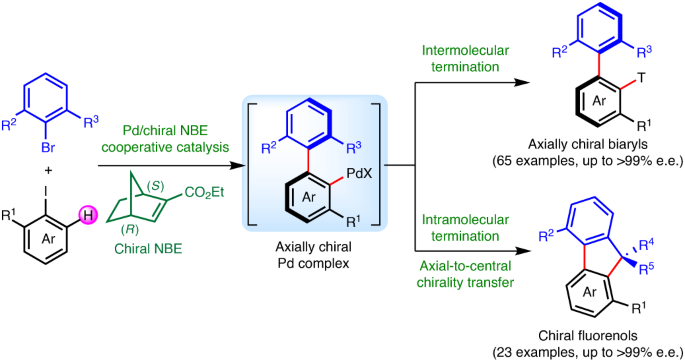- Select a language for the TTS:
- UK English Female
- UK English Male
- US English Female
- US English Male
- Australian Female
- Australian Male
- Language selected: (auto detect) - EN
Play all audios:
ABSTRACT BACKGROUND: Many obese individuals lose weight to reduce weight stigma; however, little is known about whether other people's attitudes actually improve towards obese
individuals after they have lost weight, and whether changes in attitudes depend on the method of weight loss. This study examined changes in people's perceptions of an obese target who
had lost weight through diet and exercise or through surgery. METHOD: Participants (_N_=73) initially viewed an image of an obese woman or a thin woman (control condition), and were asked
to indicate their perceptions of the target with respect to the target's behaviors (for example, how often she exercises), as well as some personality characteristics (for example,
lazy, sloppy and competent). Participants then viewed a more recent image of the target in which she had lost weight, and were informed that the target had lost weight through diet and
exercise or through surgery, or were not provided with any explanation for the weight loss. Participants once again indicated their impression of the target on the same measures. RESULTS:
Regardless of the method of weight loss, all targets were rated as eating more healthily, exercising more, and being more competent and less sloppy after having lost weight. Participants
also rated the target as less lazy when they learned that she had lost weight through diet and exercise, or when no information was provided about the method of weight loss; the target who
lost weight through surgery, however, was not seen as being any less lazy after losing weight. CONCLUSION: These findings indicate that perceptions of obese individuals can in fact improve
after they have lost weight, but that this might depend on the method of weight loss. Access through your institution Buy or subscribe This is a preview of subscription content, access via
your institution ACCESS OPTIONS Access through your institution Subscribe to this journal Receive 12 print issues and online access $259.00 per year only $21.58 per issue Learn more Buy this
article * Purchase on SpringerLink * Instant access to full article PDF Buy now Prices may be subject to local taxes which are calculated during checkout ADDITIONAL ACCESS OPTIONS: * Log in
* Learn about institutional subscriptions * Read our FAQs * Contact customer support SIMILAR CONTENT BEING VIEWED BY OTHERS THE MODIFIED WEIGHT BIAS INTERNALIZATION SCALE: MEASUREMENT
INVARIANCE BY WEIGHT STATUS AND RACE AMONG UNDERGRADUATE WOMEN Article 14 August 2024 HIGHER-WEIGHT SOCIAL IDENTITY AS A RISK AND PROTECTIVE FACTOR IN THE NEGATIVE HEALTH CONSEQUENCES OF
WEIGHT STIGMA: A SYSTEMATIC REVIEW Article Open access 16 April 2025 DIFFERENTIAL MECHANISMS AFFECTING WEIGHT LOSS AND WEIGHT LOSS MAINTENANCE Article 23 August 2023 REFERENCES * Ogden CL,
Carroll MD, Curtin LR, McDowell MA, Tabak CJ, Flegal KM . Prevalence of overweight and obesity in the United States, 1999–2004. _JAMA_ 2006; 295: 1549–1555. Article CAS PubMed Google
Scholar * Australian Bureau of Statistics. _National health survey: summary of results, 2007-2008 (Reissue)_. Retrieved from http://www.abs.gov.au/ausstats/[email protected]/mf/4364.0, 2009. *
Australian Bureau of Statistics. _Smoking, risky drinking and obesity_. Retrieved from http://www.abs.gov.au/AUSSTATS/[email protected]/Lookup/4102.0Main+Features30Dec+2009, 2009. * Puhl RM, Heuer CA
. The stigma of obesity: a review and update. _Obesity_ 2009; 17: 941–964. Article PubMed Google Scholar * Puhl R, Brownell KD . Bias, discrimination, and obesity. _Obes Res_ 2001; 9:
788–805. Article CAS PubMed Google Scholar * Crandall CS . Prejudice against fat people: ideology and self-interest. _J Pers Soc Psychol_ 1994; 66: 882–894. Article CAS PubMed Google
Scholar * Teachman BA, Gapinski KD, Brownell KD, Rawlins M, Jeyaram S . Demonstrations of implicit anti-fat bias: the impact of providing causal information and evoking empathy. _Health
Psychol_ 2003; 22: 68–78. Article PubMed Google Scholar * Hilbert A, Rief W, Braehler E . Stigmatizing attitudes toward obesity in a representative population-based sample. _Obesity_
2008; 16: 1529–1534. Article PubMed Google Scholar * Penny H, Haddock G . Anti-fat prejudice among children: the ‘mere proximity’ effect in 5–10 year olds. _J Exp Soc Psychol_ 2007; 43:
678–683. Article Google Scholar * Brown I . Nurses’ attitudes towards adult patients who are obese: Literature review. _J Adv Nurs_ 2006; 53: 221–232. Article PubMed Google Scholar *
Jay M, Kalet A, Ark T, McMacken M, Messito MJ, Richter R _et al_. Physicians’ attitudes about obesity and their associations with competency and specialty: A cross-sectional study. _BMC
Health Serv Res_ 2009; 9: 106–117. Article PubMed PubMed Central Google Scholar * Schwartz MB, Vartanian LR, Nosek BA, Brownell KD . The influence of one's own body weight on
implicit and explicit anti-fat bias. _Obesity_ 2006; 14: 440–447. Article PubMed Google Scholar * Goldstein DJ . Beneficial health effects of modest weight loss. _Int J Obes Relat Metab
Disord_ 1992; 16: 397–415. CAS PubMed Google Scholar * Oster G, Thompson D, Edelsberg J, Bird AP, Colditz GA . Lifetime health and economic benefits of weight loss among obese persons.
_Am J Public Health_ 1999; 89: 1536–1542. Article CAS PubMed PubMed Central Google Scholar * Geier AB, Schwartz MB, Brownell KD . ‘Before and after’ diet advertisements escalate weight
stigma. _Eating Weight Dis_ 2003; 8: 282–288. Article CAS Google Scholar * Blaine BE, DiBlasi DM, Connor JM . The effect of weight loss on perceptions of weight controllability:
implications for prejudice against overweight people. _J Appl Biobehav Res_ 2002; 7: 44–56. Article Google Scholar * Christopher AN, Morgan RD, Marek P, Troisi JD, Jones JR, Reinhart DF .
Affluence cues and first impressions: does it matter how the affluence was acquired? _J Econ Psychol_ 2005; 26: 187–200. Article Google Scholar * O’Brien PE, Sawyer SM, Laurie C, Brown WA,
Skinner S, Veit F _et al_. Laparoscopic adjustable gastric banding in severely obese adolescents: a randomized trial. _JAMA_ 2010; 303: 519–526. Article PubMed Google Scholar * Shabbir
A, Loi TH, Lomanto D, Ti TK, So JBY . Surgical management of obesity: National university hospital experience. _Annals Acad Med Singapore_ 2009; 38: 882–890. Google Scholar * Peace K, Dyne
J, Russell G, Stewart R . Psychological effects of gastric restriction surgery for morbid obesity. _New Zeal Med J_ 1989; 102: 76–78. CAS PubMed Google Scholar * Kral JG, Sjöström LV,
Sullivan MBE . Assessment of quality of life before and after surgery for severe obesity. _Am J Clin Nutr_ 1992; 55: 611S–614S. Article CAS PubMed Google Scholar * Rand CW, MacGregor AMC
. Morbidly obese patients’ perceptions of social discrimination before and after surgery for obesity. _South Med J_ 1990; 83: 1390–1395. Article CAS PubMed Google Scholar * Vallis TM,
Butler GS, Perey B, van Zanten SJO, MacDonald AS, Konok G . The role of psychological functioning in morbid obesity and its treatment with gastroplasty. _Obes Surgery_ 2001; 11: 716–725.
Article CAS Google Scholar * Mattingly BA, Stambush MA, Hill AE . Shedding the pounds but not the stigma: negative attributions as a function of a target's method of weight loss. _J
Appl Biobehav Res_ 2009; 14: 128–144. Article Google Scholar * Fiske ST, Cuddy AC, Glick P, Xu J . A model of (often mixed) stereotype content: competence and warmth follow from perceived
status and competition. _J Pers Soc Psychol_ 2002; 82: 878–902. Article PubMed Google Scholar * Tiggemann M, Rothblum ED . Gender differences in social consequences of perceived
overweight in the United States and Australia. _Sex Roles_ 1988; 18: 75–86. Article Google Scholar * Vartanian LR, Silverstein KM . Obesity as a status cue: perceived social status and the
stereotypes of obese individuals (submitted for publication). Download references AUTHOR INFORMATION AUTHORS AND AFFILIATIONS * School of Psychology, The University of New South Wales,
Sydney, NSW, Australia J Fardouly & L R Vartanian Authors * J Fardouly View author publications You can also search for this author inPubMed Google Scholar * L R Vartanian View author
publications You can also search for this author inPubMed Google Scholar CORRESPONDING AUTHOR Correspondence to L R Vartanian. ETHICS DECLARATIONS COMPETING INTERESTS The authors declare no
conflict of interest. RIGHTS AND PERMISSIONS Reprints and permissions ABOUT THIS ARTICLE CITE THIS ARTICLE Fardouly, J., Vartanian, L. Changes in weight bias following weight loss: the
impact of weight-loss method. _Int J Obes_ 36, 314–319 (2012). https://doi.org/10.1038/ijo.2011.26 Download citation * Received: 23 December 2010 * Accepted: 23 January 2011 * Published: 01
March 2011 * Issue Date: February 2012 * DOI: https://doi.org/10.1038/ijo.2011.26 SHARE THIS ARTICLE Anyone you share the following link with will be able to read this content: Get shareable
link Sorry, a shareable link is not currently available for this article. Copy to clipboard Provided by the Springer Nature SharedIt content-sharing initiative KEYWORDS * weight bias *
stereotypes * weight loss * diet and exercise * surgery







